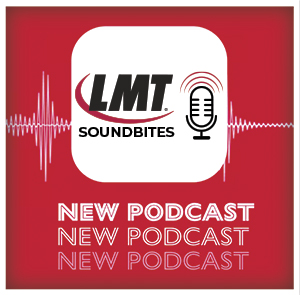Letters to the Editor: Sold in China
Dear LMT:
Why is everything made in China? Here are some possible reasons:
People in China work for very little money.
The Chinese work ethic is extremely strong.
The fundamental cost to manufacture products in the U.S. is much higher than China due to: health insurance for employees, business insurance, minimum wage requirements, taxes, and regulations from OSHA, EPA, FDA, NLRB and countless other government agencies.
U.S. trade barriers are much lower than Chinese trade barriers.
Chinese currency is artificially deflated by the Chinese government. Despite these possible reasons, there are opportunities for foreign goods to get a foothold in the Chinese market. In general, quality control is a concept that isn't completely understood by many Chinese manufacturers. Most Chinese manufacturers are driven to be the lowest-cost producers. In addition, the Chinese are very adept at making "fake" goods. These two factors result in a general mistrust of Chinese-made goods by ordinary Chinese people, and especially those in the middleclass who can afford higher quality foreign made products. This phenomenon is true in just about all product categories, and especially dental products.
For example, the Nobilium division of CMP Industries LLC manufactures the Demco grinder, a relatively simple alloy grinding machine. While many Chinese-made replicas of this machine can be found at dental trade shows in China, Nobilium sells about 1,000 Demco grinders in China each year at a price that's about double the cost of the Chinese- made product. The small difference between the Demco grinder and the Chinese-made counterpart is the quality of a key part--the spindle--that requires some precision machining and ultra-high quality bearings and springs.
Another example is Nobilium's line of partial denture alloys and materials. We exhibit at three or four dental trade shows per year in China and offer non-precious alloys made from virgin raw materials. Nobilium's presence at these shows and high quality products gives Chinese dental product consumers a feeling of confidence they're willing to pay for.
In the 60s, "Made in Japan" meant low quality. The Japanese fundamentally reformed their thinking by developing quality control systems to engineer quality upfront into each and every process so that the end result was consistent and high quality. William Edwards Deming, a U.S. manufacturing expert, has been credited with starting this remarkable revolution from low to high quality in Japan.
If China can reform its approach to quality as did the Japanese, the Chinese people may eventually have more trust in products produced by their fellow countrymen. This may make U.S.-made products less attractive in the Chinese market; however, this will also increase production costs in China. As a result, Chinese-made dental prosthetics will be less competitive in the U.S. market, and then maybe U.S.-based dental laboratories will see a gradual upswing of business. Let's hope this comes true!
~ Devon Howe, President & CEO, Nobilium/Ticonium (CMP Industries LLC), Albany, NY






